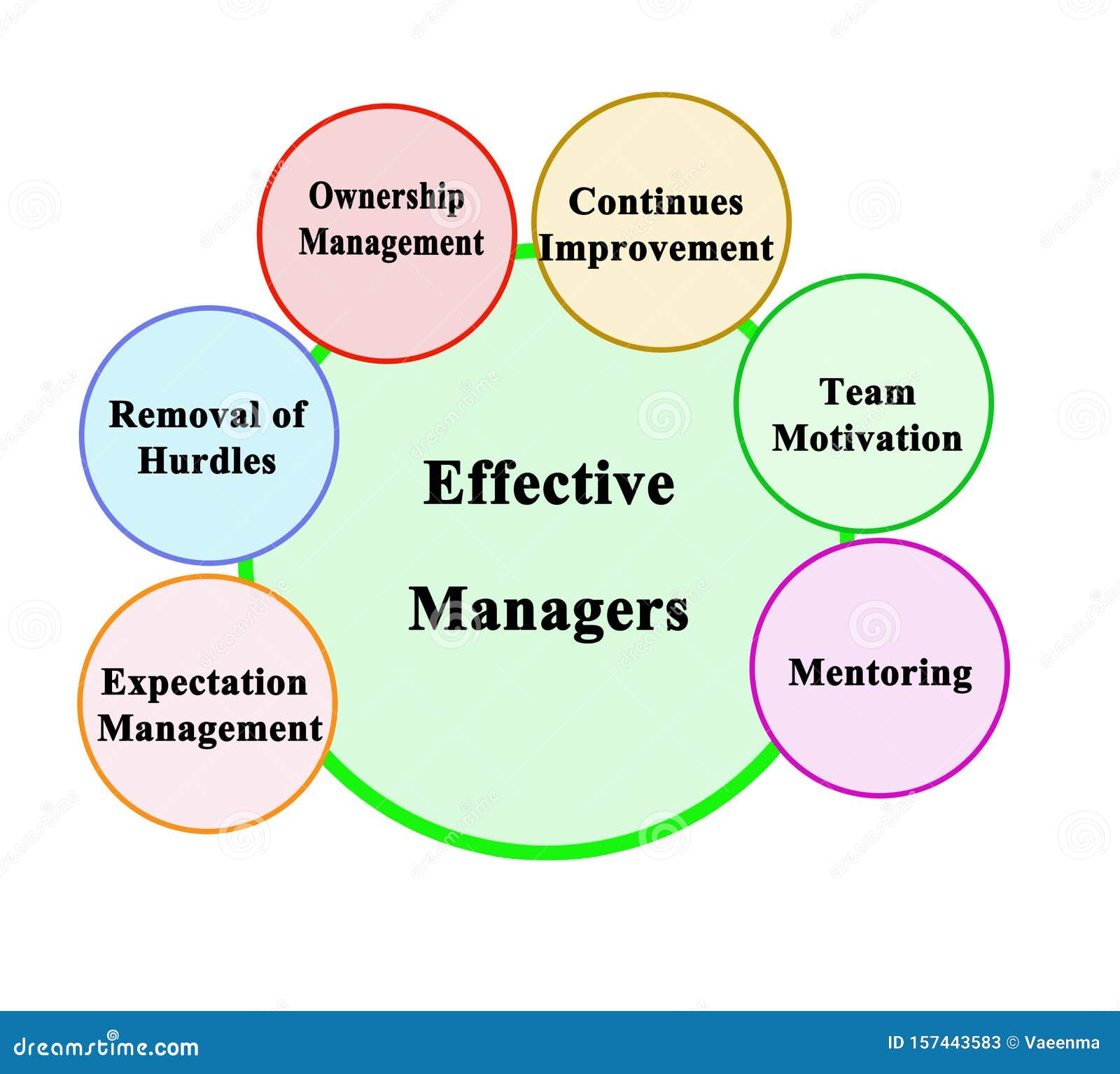In today’s fast-paced business environment, effective managers play a crucial role in driving organizational success. They embody good management skills, utilizing a blend of leadership capabilities and analytical acumen to navigate complex challenges. Research has shown that the qualities of a good manager go beyond mere experience or personality; they must possess the ability to foster a culture of psychological safety while also making sound economic decisions. Moreover, selecting managers scientifically by relying on predictive measures of management can significantly enhance team performance and productivity. Ultimately, organizations that prioritize effective managers are better positioned to achieve their goals and maintain a competitive edge.
Effective leadership in any organization hinges on the ability of its leaders to manage people and resources effectively. Strong leadership techniques are critical, as they encompass the skills necessary for guiding teams and ensuring that targets are met. Successful management traits, such as emotional intelligence and decision-making prowess, are essential in cultivating a supportive and productive work environment. Furthermore, applying a scientific approach to manager selection, utilizing data-driven insights, can lead to improved outcomes for businesses. In essence, the intersection of management capabilities and a data-informed selection process lays the foundation for sustainable success in today’s dynamic landscape.
The Qualities of a Good Manager
To excel in management, several core qualities are essential, making it increasingly difficult to find suitable candidates. Effective managers must possess strong interpersonal skills, allowing them to create an environment of psychological safety where team members feel secure enough to share ideas and accept feedback. This quality, among others, forms the backbone of successful management, as it fosters trust and collaboration within teams. Coupled with strong communication skills, a good manager knows how to approach feedback sensitively, ensuring that employees receive constructive criticism in a manner that promotes growth.
Furthermore, analytical abilities are paramount for effective management. A good manager must not only understand their team dynamics but also possess a strategic vision that aligns with the organization’s overall goals. This understanding allows managers to allocate resources wisely, maximize efficiency, and reassess organizational strategies as needed. While the interaction of these qualities is complex and requires practice, recognizing them can greatly enhance the process of selecting managers and ultimately contribute to a company’s success.
Effective Managers: Why Selectivity Matters
The selection process for effective managers is a critical component of organizational success. Research indicates that companies often choose managers based on subjective factors such as personality traits, age, or experience rather than on objective measures. This approach can lead to significant inefficiencies, as demonstrated by recent studies suggesting that the best predictors of managerial effectiveness lie in cognitive capabilities and decision-making skills. Effective managers utilize these skills to navigate unpredictable work environments, making choices that guide their teams toward success.
When organizations adopt a more scientific approach to selecting managers—such as evaluating IQ and economic decision-making skills—they increase their chances of identifying candidates who are well-suited for the role. This transition toward data-driven recruitment processes can significantly enhance organizational performance. It underscores the importance of utilizing predictive measures of management, as managers equipped with the right skills are more likely to achieve fruitful outcomes amid complex challenges.
Leadership Capabilities: More Than Just a Desire to Lead
A common misconception is that individuals who express a strong desire to lead are necessarily the most effective managers. However, recent studies reveal that those who volunteer for leadership roles often underperform compared to randomly assigned managers. This incongruity highlights the distinction between the aspiration to lead and possessing the skill set required for effective management. By understanding this dichotomy, organizations can rethink their hiring practices and reduce reliance on subjective preferences when identifying leadership potential.
The findings challenge traditional assumptions about leadership selection, suggesting that organizations should prioritize analytical assessments of managerial capabilities. This approach aligns with principles of good management skills, focusing on objective measures that directly correlate with effective leadership. Companies that embrace this analytical framework will likely find themselves better equipped to foster talent that truly reflects effective leadership capabilities.
Predictive Measures of Management: IQ and Decision-Making Skills
The art and science of effective management can significantly benefit from predictive measures such as IQ and economic decision-making skills. Research by leading scholars showcases that traditional assessment factors like personality traits or past experiences do not effectively predict a manager’s success. In contrast, tools like the Raven’s Progressive Matrices test provide insights into an individual’s cognitive abilities, which play a pivotal role in problem-solving and resource management. By utilizing these metrics, organizations can enhance their ability to select the right managers who can effectively lead teams.
In addition to traditional intelligence measures, economic decision-making skills reveal a manager’s capacity for resource allocation under time-sensitive conditions. These skills encompass not only the ability to make quick decisions but also to strategize effectively in challenging situations. By emphasizing these predictive measures during selection processes, companies can identify individuals who are better equipped for management roles and, consequently, drive greater organizational success.
Selecting Managers Scientifically: A New Approach
The selection of managers doesn’t have to rely solely on traditional methods that often yield unpredictable results. By adopting scientific methods in selecting managers, organizations can enhance their hiring practices. This includes using structured interviews and proficiency assessments that focus on quantifiable skills tied to managerial effectiveness. By implementing a rigorous selection process that considers a manager’s ability to lead effectively, organizations can better ensure that they are choosing individuals who are equipped to drive their teams towards success.
Furthermore, this scientific approach encourages companies to view management as an analytical process rather than an art form based on soft skills and subjective judgments. When organizations rely on solid empirical data, they can draw correlations between managerial skills and team performance. In doing so, they create a more transparent process in which promising candidates are identified based on relevant criteria, thus increasing the likelihood of successful management outcomes.
The Importance of Communication Skills in Management
Communication stands as a vital pillar of effective management. Managers are not only responsible for conveying information within their teams but must also be adept at interpreting feedback and concerns raised by team members. The ability to navigate these communications thoughtfully can significantly impact a team’s morale and effectiveness. Hence, integrating strong communication capabilities into the framework of good management skills is crucial for fostering a constructive work environment.
Effective managers recognize that there isn’t a single approach to communication; it varies based on the audience and context. They tailor their communication styles to meet the needs of different individuals, ensuring that clarity and empathy are prioritized. This flexibility fosters stronger relationships and enhances team cohesion, ultimately driving performance. Cultivating communication skills is imperative for managers aiming to lead effectively in today’s diverse and rapidly changing work environments.
How Psychological Safety Empowers Teams
A conducive work environment thrives on psychological safety, which is essential for promoting open dialogue within teams. Managers play a crucial role in cultivating this atmosphere by actively encouraging team members to express their thoughts and ideas without fear of repercussions. As outlined in various studies, when employees feel secure in their roles, they are more likely to share innovative ideas, resulting in higher levels of engagement and productivity.
Good managers help establish psychological safety by implementing practices that prioritize trust and respect among team members. Fostering this sense of security enables employees to develop their skills and contribute meaningfully to the team, ensuring a collective focus on achieving shared goals. Thus, creating a psychologically safe workplace is an indispensable quality of effective managers, as it directly influences team dynamics and overall organizational success.
Continuous Improvement: A Key to Managerial Success
Effective managers understand that improvement is a continuous journey. They actively seek feedback, encourage professional development, and adapt their management strategies based on the changing dynamics of their teams. Successful managers invest in their growth, recognizing that learning from past experiences is vital for future success. By embracing a mindset of continuous improvement, they lead by example and inspire their teams to strive for excellence.
Organizations that promote this principle benefit greatly from having leaders who are flexible and willing to adapt to new challenges. This commitment to improvement fosters a strong learning culture within teams where all employees feel included and motivated to enhance their skills. By prioritizing continuous improvement, effective managers not only contribute to their own growth but also facilitate a path for their teams to reach their full potential.
Final Thoughts on Effective Management Practices
Effective management transcends conventional wisdom, emphasizing the need for robust selection processes that prioritize skills and capabilities over subjective traits. The insights gathered from recent research advocate for a more analytical approach to managerial selection, which could lead organizations to significant enhancements in productivity and team effectiveness. Evaluating predictive measures and embracing scientific methodologies in leadership roles presents an opportunity for companies to redefine their management practices.
Ultimately, striving to identify good managers through objective measures and comprehensive assessments can yield substantial benefits for organizations. As businesses continue to face evolving challenges, acknowledging the value of analytical approaches in selecting effective managers will be paramount for fostering a new generation of leaders capable of guiding their teams to success.
Frequently Asked Questions
What qualities of a good manager are essential for effective management?
Effective managers possess several qualities that make them stand out. Key traits include strong communication skills, the ability to create psychological safety for team members, analytical thinking, and strategic vision. These qualities allow managers to provide constructive feedback, motivate their teams, and reassess team dynamics, which are essential for effective management.
How can organizations scientifically select effective managers?
Organizations can improve their selection of effective managers by using predictive measures such as IQ tests and economic decision-making skills assessments. These tools help identify individuals who excel in resource allocation and problem-solving, which are critical for effective management.
Why is it challenging to find good managers in organizations?
Finding effective managers is challenging because many organizations rely on subjective traits such as personality or experience rather than objective measures. Effective management requires a combination of interpersonal skills, analytical abilities, and a clear strategic vision, which are often rare in individuals.
What role do leadership capabilities play in effective management?
Leadership capabilities are crucial for effective management because they allow managers to inspire and motivate their teams. However, possessing a strong desire to lead does not necessarily equate to being a good manager. Skills such as listening, understanding team dynamics, and making informed decisions are what truly predict managerial success.
What are the best predictive measures of management effectiveness?
The study identifies intelligence, as measured by specific cognitive tests, and economic decision-making skills as the most predictive measures of managerial effectiveness. Unlike traditional methods based on personality or experience, these measures focus on the specific skills relevant to effective management.
Why is good management important in today’s organizational environment?
Good management is essential because it enables organizations to navigate complex and unpredictable challenges while optimizing resource allocation. Effective managers are vital in helping teams prioritize tasks, enhance performance, and adapt to changing business dynamics.
How does psychological safety influence effective management?
Psychological safety fosters an environment where team members feel secure and valued, allowing them to engage openly without fear of criticism. Effective managers create this environment, enabling teams to collaborate freely and improve overall productivity.
How can managers balance leadership capabilities and good management skills?
Managers can achieve this balance by focusing on both interpersonal skills and analytical abilities. Effective leaders should be able to motivate their team while also using data and insights to guide decisions, ensuring that they are addressing both the emotional and functional aspects of management.
What implications does the research on effective managers have for organizational hiring practices?
The research suggests that organizations should adopt data-driven methods for hiring managers, focusing less on subjective traits like personality and more on concrete skills related to decision-making and resource allocation. This could lead to a more scientific approach to building effective management teams.
How can organizations improve the performance of their managers?
Organizations can enhance manager performance by implementing training programs that develop key skills, such as decision-making under pressure and effective communication. Additionally, fostering a culture of feedback and continuous improvement can lead to more effective management practices.
| Key Metrics for Managerial Effectiveness | Metric | Importance | |
|---|---|---|---|
| IQ (Raven’s Progressive Matrices Test) | Measures general intelligence and problem-solving capabilities, crucial for effective decision-making. | ||
| Economic Decision-Making Skill | Predicts how well a manager allocates resources and organizes their team for optimum output. | ||
| Psychological Safety and Communication Skills | Create a stable environment for feedback and enhance team interactions. | ||
| Strategic Vision | Essential for understanding organizational goals, although not specifically measured in the study. | ||
Summary
Effective managers are pivotal in navigating the complexities of modern organizations. The recent study highlights that relying on traditional metrics like personality or experience in selecting leaders may not yield the best results. Instead, prioritizing IQ and economic decision-making skills can significantly enhance managerial effectiveness. Additionally, fostering psychological safety and strong communication is essential for creating a productive work environment. Understanding these factors can lead to better managerial appointments and ultimately drive organizational success.


